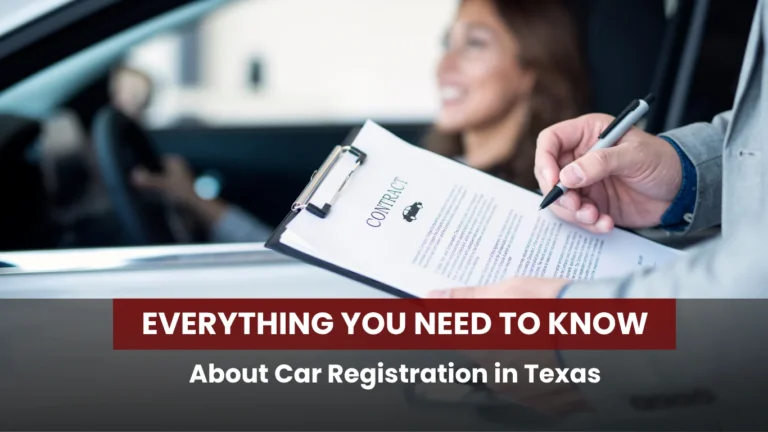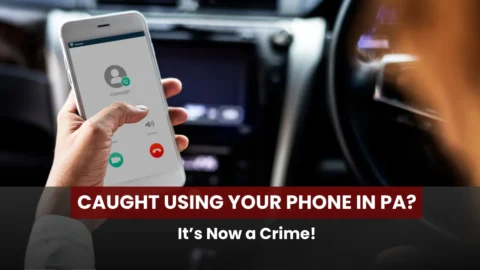The move from the UK’s familiar systems, like the DVLA and MOT, to the American system can feel like navigating a maze, especially when you land in a vast state like Texas. One of the first and most critical tasks is ensuring your vehicle is legally registered.
Texas is unique, and its vehicle code is no exception. This isn’t just a simple swap of license plates; it’s a multi-step process involving the Texas Department of Motor Vehicles and your local County Tax Assessor-Collector’s office. Getting this right is crucial, as avoiding the proper Texas car registration requirements can lead to significant headaches and financial penalties.
The Foundation: Texas Car Registration Requirements
Before you even set foot in a Tax Office, you need to lay the groundwork. The overall goal is to secure both a Texas Title (proof of ownership) and Texas Registration (the license plates and sticker allowing you to legally drive).
The essential Texas car registration requirements are as follows:
- Proof of Insurance: Texas requires minimum liability coverage
- Proof of Inspection: A passing vehicle inspection, which includes a safety check
- Proof of Ownership: The original title, Manufacturer’s Certificate of Origin for new vehicles, or your previous state’s registration if you are a new resident.
- Completed Application: The Application for Texas Title and/or Registration
Navigating the Vehicle Inspection Requirement
The Texas vehicle inspection requirement registration process is unique and must be completed. Texas runs a Two Steps, One Sticker program, which combines the inspection and registration, though the inspection must come first.
- Safety Inspection: All vehicles are required to pass a safety inspection covering items like brakes, lights, steering, and tires.
- Emissions Test (If Applicable): If you reside in one of 17 specific Texas counties also your vehicle will require an emissions test.
You must have a passing inspection from a certified station. The station will electronically submit the inspection report to the state database. You’ll need to wait for this report to be processed before you can proceed with registration—a step that often trips up new residents.
The Full Journey: How to Register a Vehicle in Texas
The path you take depends on whether you bought your vehicle from a licensed dealer, a private seller, or if you are moving into the state with your existing car.
Steps to Register a New Car in Texas
If you purchased a used vehicle from a private seller, the bulk of the responsibility falls on you. Here are the steps to register a new car in Texas:
- Get Insurance: Secure Texas-minimum liability insurance.
- Get an Inspection: Take the vehicle and your proof of insurance to a certified Texas inspection station.
- Complete Forms: Fill out the Application for Texas Title and/or Registration.
- Pay Taxes: Be prepared to pay the 6.25% motor vehicle sales tax on the purchase price or certified value of the vehicle.
- Visit the Tax Office: Submit all documents and fees to your local County Tax Assessor-Collector’s office within 30 calendar days of the date of sale.
Out-of-State Vehicle Registration Texas (New Residents)
For UK citizens or residents moving to the US with an existing vehicle, the process is slightly different but must be completed promptly. You have 30 days from the date you establish residency to complete out-of-state vehicle registration Texas.
- Obtain Texas Insurance: Update your auto policy to meet Texas’s minimum liability requirements.
- Obtain Inspection: Get the vehicle inspected. Unlike a new purchase, an out-of-state vehicle may also require a Vehicle Identification Number inspection, often handled at the inspection station or the Tax Office, to ensure the VIN on the car matches your documents.
- Gather Documents: Use the Texas DMV vehicle registration checklist
- Apply for Title & Registration: Visit the County Tax Assessor-Collector’s office to apply for both a Texas title and registration. You will pay a New Resident Tax and fee that replaces the sales tax usually charged on used vehicles.
The Essentials: Texas DMV Vehicle Registration Checklist
To ensure a one-stop, successful trip to the County Tax Office and to avoid the risk of paying Texas vehicle registration late fee penalties, it is critical to have this Texas DMV vehicle registration checklist prepared.
| Document Required | Purpose | Notes |
| Proof of Inspection (VIR) | Confirms vehicle safety and emissions compliance. | The Tax Office verifies this electronically, but having a physical copy (Vehicle Inspection Report) is wise. |
| Proof of Insurance | Confirms state minimum liability coverage. | Must be current and in the applicant’s name. |
| Form 130-U | Application for Texas Title and/or Registration. | Required for all new registrations and title transfers. |
| Proof of Ownership | Original title, MCO, or out-of-state registration. | This document shows legal ownership. |
| Valid Photo ID | Driver’s license or other government-issued ID. | Used to verify the applicant’s identity. |
| Odometer Disclosure | Required for vehicles less than 10 years old. | Often completed on the back of the title or Form 130-U. |
Staying Legal: Renewal and Penalties
Once you have your Texas plates and sticker, you must renew annually. The Texas vehicle registration renewal process is streamlined and can often be done from the comfort of your home.
Texas Car Registration Online Renewal
The most efficient way to maintain legal compliance is through Texas car registration online renewal. You can renew through the official Texas website if:
- You have a passing vehicle inspection on file.
- The registration lapse is under 12 months.
- You have proof of current Texas liability insurance.
The online system automatically verifies your inspection and insurance, allowing you to pay the Texas car registration fees and costs electronically and receive your new registration sticker and license plate tabs by mail within a few weeks. This is usually available 90 days before and up to 12 months after your expiration date.
Avoiding Late Fee Penalties
Failing to meet the Texas car registration requirements deadlines results in steep financial consequences. The state is strict about the Texas vehicle registration late fee penalties:
- Expired Registration Citation: If you are caught driving with an expired sticker, you can face a fine of up to $200 plus court costs. You must then pay a 20% late penalty fee on your registration fee when you renew.
- Late Title Transfer Penalty: If you fail to apply for a title transfer within the 30-day window after purchasing a vehicle, the state assesses a penalty of $25 for each month you are late, up to a maximum of $250.
These penalties are non-negotiable and highlight why using the Texas DMV vehicle registration checklist and adhering to the 30-day deadlines is paramount, especially for new residents dealing with out-of-state vehicle registration Texas.
Frequently Asked Questions
No, but you must apply for a Texas driver’s license within 90 days of moving. The car registration process (within 30 days) is separate and requires only your current photo ID and proof of residency in the initial steps.
This is common. For out-of-state vehicle registration Texas, you will provide your current registration receipt from your previous state, along with the lienholder’s name and address.
Emissions testing is required in 17 specific counties, primarily those with major metropolitan areas If you live outside these counties, only the safety inspection is required.
Yes, you can complete your Texas car registration online renewal up to 12 months after the expiration date, provided you have a valid inspection and insurance, and you have not received a citation for the expired registration. If you received a citation, you must renew in person at the county tax office.
The New Resident Tax is a $90 fee paid by new residents registering a vehicle brought from another state or country. It replaces the standard 6.25% sales tax that would typically be collected if you purchased the vehicle in Texas, offering a more predictable cost for those performing out-of-state vehicle registration Texas.
Use the Texas DMV vehicle registration checklist: Proof of Insurance, Proof of Inspection, Proof of Ownership, and your photo ID. Being prepared is the key to avoiding Texas vehicle registration late fee penalties.For personalized advice on complex vehicle or inspection issues, bypass the guesswork. Join Ask About Cars and get expert answers instantly.
No, but you must apply for a Texas driver’s license within 90 days of moving. The car registration process (within 30 days) is separate and requires only your current photo ID and proof of residency in the initial steps.
This is common. For out-of-state vehicle registration Texas, you will provide your current registration receipt from your previous state, along with the lienholder’s name and address.
3. How do I know if my vehicle needs an emissions test as part of the Texas vehicle inspection requirement registration?
Yes, you can complete your Texas car registration online renewal up to 12 months after the expiration date, provided you have a valid inspection and insurance, and you have not received a citation for the expired registration. If you received a citation, you must renew in person at the county tax office.
The New Resident Tax is a $90 fee paid by new residents registering a vehicle brought from another state or country. It replaces the standard 6.25% sales tax that would typically be collected if you purchased the vehicle in Texas, offering a more predictable cost for those performing out-of-state vehicle registration Texas.
Use the Texas DMV vehicle registration checklist: Proof of Insurance, Proof of Inspection, Proof of Ownership, and your photo ID. Being prepared is the key to avoiding Texas vehicle registration late fee penalties.For personalized advice on complex vehicle or inspection issues, bypass the guesswork. Join Ask About Cars and get expert answers instantly.







